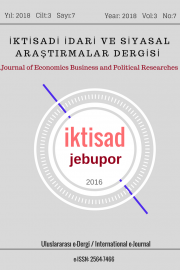TELECOMMUNICATION SECTOR REGULATORY CHALLENGES IN BOSNIA AND HERZEGOVINA
TELECOMMUNICATION SECTOR REGULATORY CHALLENGES IN BOSNIA AND HERZEGOVINA
Author(s): Tarik ZaimovićSubject(s): Communication studies, ICT Information and Communications Technologies
Published by: Haci Mustafa Paksoy
Keywords: Telecommunications; regulatory authorities; multinomial logit; Bosnia;
Summary/Abstract: Much anticipated privatization of the two remaining incumbent telecom operators in Bosnia will create a new dynamic and changing environment for all participants in this sector, especially for potential investors that are trying to find the right approach and a competitive market niche. The intention of this paper is to provide an overview of regulatory developments in the telecommunication sector over the past two decades, major challenges, accomplishments, and the role played by State Communication Regulatory Agency (CRA). The research includes the analyses of adopted Sector Policies, the Telecommunication Law itself, as well as the rules and major decisions issued by CRA. Through a countrywide survey and multinomial logit estimation of consumer's selection between the two largest mobile carriers, as well as in-depth interviews with the sector participants and CRA – we provided consumers' and participants' opinions of the sector development, achievements, challenging issues, and major stepping stones. Asserting its role as an independent regulatory authority and despite unprecedented political difficulties, the CRA has managed to complete the overall process of sector liberalization. It has done so mostly by utilizing an ex-ante form of regulation and proactively addressing critical areas for the sector development. But, market conditions are constantly changing and the demand for ex-post regulation will bring new challenges for regulatory authorities. The privatization of remaining incumbent carriers, making the maximum use of local-loop unbundling and open network provision, is only one of them. Also, securing the balanced infrastructure development and ensuring that the overall social welfare gains are equally distributed throughout the country will present new and evermore challenging questions for country telecommunication regulatory authorities.
Journal: İktisadi İdari ve Siyasal Araştırmalar Dergisi (İKTİSAD)
- Issue Year: 3/2018
- Issue No: 7
- Page Range: 165-185
- Page Count: 21
- Language: English

